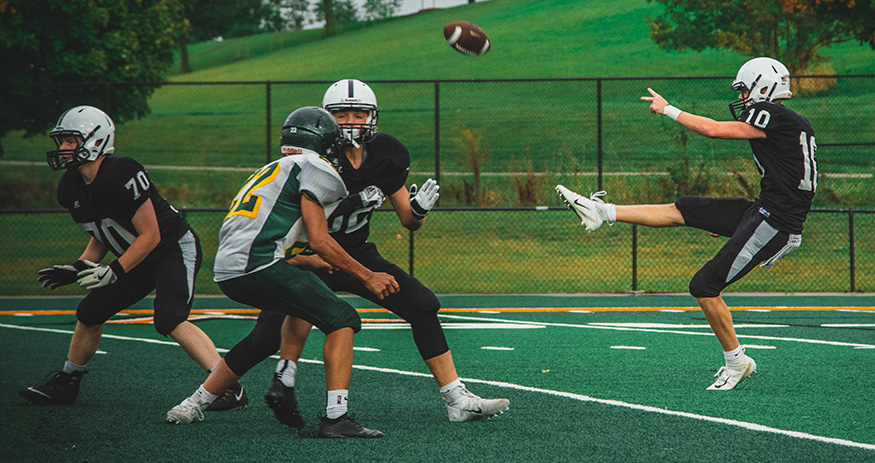Court of Appeals punts
November 8, 2023

Occasionally in the law, the irresistible force meets the unmovable object.
This occurs when two public policies, with close to if not equal merits, conflict. While frustrating because one valid interest has to yield, it can lead to a fascinating examination of the relative merits of each policy. Little, if anything, is more absorbing in legal practice.
Unfortunately, the Wisconsin Court of Appeals, facing such an opportunity, chose to punt, and it wasn’t even fourth down. Put another way, rather than engage in the important and intriguing exercise of examining the relative merits, they avoided the issue entirely.
The case is Potter v. Circuit Court, 22AP1396. The competing issues are the rights of defendants to have witnesses excluded from a trial so their testimony is not tainted by hearing other witnesses, versus the rights of victims under Marsy’s law, WIS. CONST. art. I, § 9m., a recent amendment to the Wisconsin Constitution. This is an important and common conflict which is not a theoretical exercise – rather, this issue arises multiple times per day in the high volume criminal courts of Milwaukee County.
The Milwaukee D.A.’s office is caught in the middle, not wanting to have a jury verdict reversed on appeal due to failing to sequester witnesses and, at the same time, also wanting to protect victims’ rights. A direct appeal to a sequestration order may very well be frustrated as moot since any appellate determination would occur well after the trial (and any resulting damage either way).
So, the Milwaukee D.A.’s office through Tom Potter (the captain of the misdemeanor team) chose to get a determination by setting up a contempt action that would not be moot. To do so, Potter threw himself under the bus by intentionally violating a court’s sequestration order by advising a witness to violate the order, informing the court of having done so, thus allowing himself to be found in contempt and fined $500 and allowing an appeal.
Notwithstanding the importance of this issue and the frequency in which it arises, the appellate court wimped out.
It found that Potter was attempting to collaterally attack the circuit court’s sequestration order by appealing the court’s order finding him in contempt. The court further found that Potter had not shown that an exception to the collateral attack rule applies, as an appellate court “may conclude” that the issue is an exception to the rule against deciding moot issues. The appellate court concluded that the D.A.’s office should have taken a direct appeal of the circuit court’s sequestration order.
Note the words “may conclude.” After a direct appeal, the appellate court could have punted on the issue as well. Maybe the court would have then suggested a contempt procedure. This is a judicial version of “heads I win, tails you lose.”
The appellate court had an important issue directly in front of it, which needs to be decided. It could have – should have – discussed the relative merits of each interest and made a choice as to which prevailed.
By avoiding the issue they not only missed an opportunity for a fascinating discussion but provided no assistance to prosecutors and trial courts.





